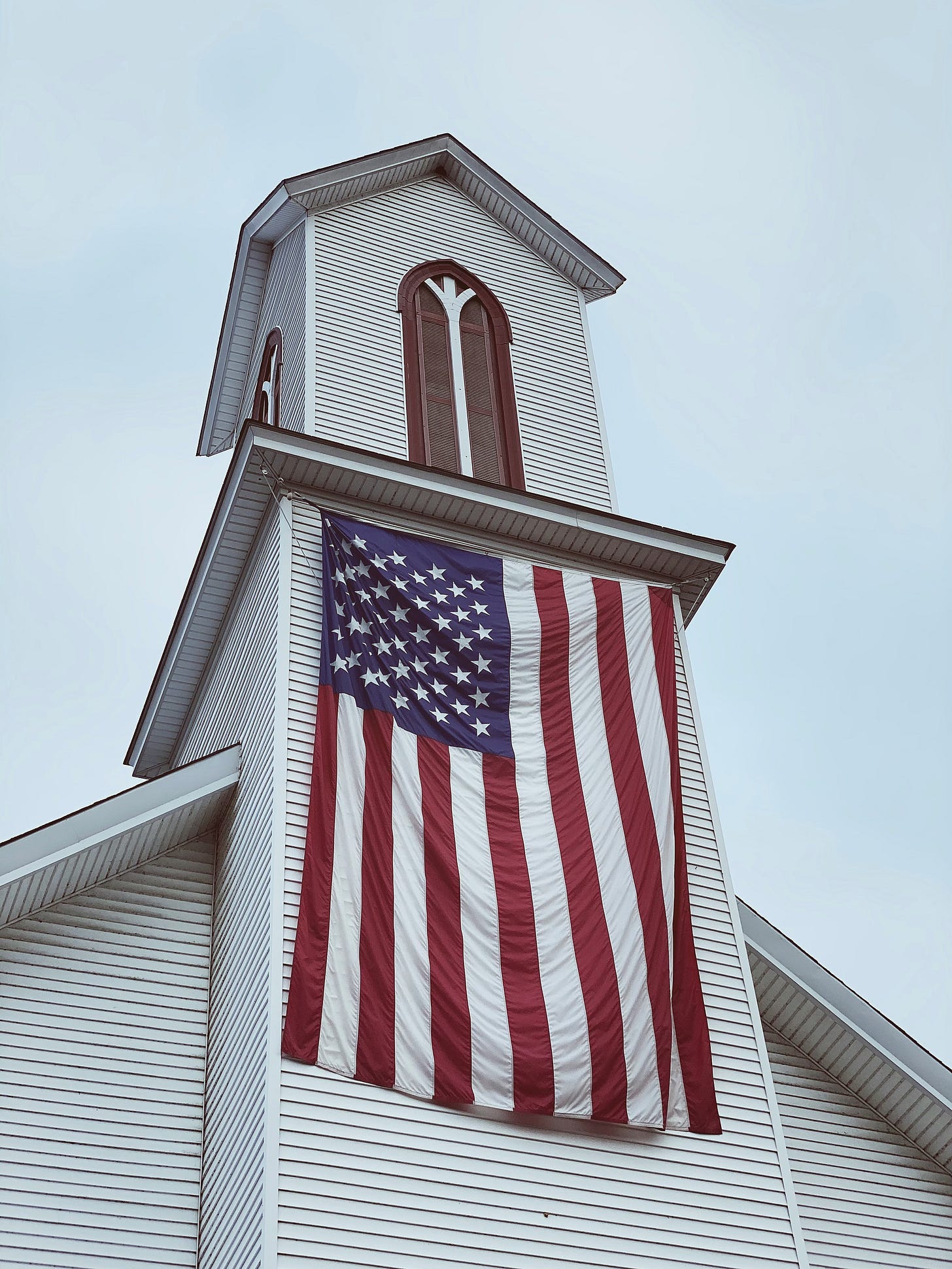I Came to Pray. I Left Grieving.
My experience at a National Day of Prayer Event
I was recently invited to pray at a National Day of Prayer event here in Tulsa. As someone who longs to see the Church united in Jesus, I eagerly accepted, excited to gather with other pastors and believers to lift up the name of Christ across our city. But instead of walking away encouraged, I left that chapel deeply grieved.
To be clear, some of the pastors who were invited did focus their prayers on Jesus and the kingdom of God—calling on the Spirit to bring renewal in every sphere of life. But the tone and agenda set by the event organizers told a different story. It reminded me of what happens when you’ve been drifting slowly and subtly for so long that you no longer realize how far you’ve veered from your intended destination.
The first thing that caught me off guard was how often people, microphone in hand, began referencing our “battle” against them—a vague but charged opposition. At first, I assumed they were referring to what Paul names in Ephesians 6:12: “the rulers, authorities, the powers of this dark world, and the spiritual forces of evil in the heavenly realms.” But no—theyweren’t demonic powers. They were liberals. Democrats. Anyone seen as threatening a particular version of America that, somewhere along the way, had been fused with the kingdom of God.
When someone prayed for God’s kingdom to come or for the Spirit of Christ to move across our nation, the response was mild—an “Amen” here or there. But when certain political candidates were named, the room lit up with applause, cheers, and even standing ovations. I grew up in the Pentecostal/Charismatic Church—but I don’t recall ever feeling more uncomfortable in a sanctuary than I did that day.
Halfway through, we paused to watch a 4–5 minute video that praised the current political administration. It didn’t just highlight policy—it blurred the line between political allegiance and spiritual devotion, portraying their agenda as if it were synonymous with the kingdom of God. I was just minutes from stepping up to pray, and my palms started sweating. I scanned the room, wondering, Is anyone else feeling this?
When my time came, I delivered my three-minute prayer—doing my best to stay on the topic I was assigned, while still weaving in a few subtle lines that challenged the conflation of God’s kingdom with our political kingdoms. As the closing “Amen” was said, I made my way to my car as fast as I could.
Let me be clear: I’m not writing this to disrespect anyone, slap labels on people, or lump every participant into one category. But I walked out of that chapel grieved in my soul. I came for the National Day of Prayer, and I ended up at what felt like the National Day of Power.
This is how spiritual drift works. It’s often subtle. Undetectable at first. But when power and fear become our primary motivators, we slowly lose sight of Jesus. And when you’ve been drifting for years, it’s hard to even remember where the current started pulling you off course.
On the drive home, I couldn’t stop thinking about what happens when we, as followers of Jesus, lose our foundational story. When the gospel is no longer the good news that we’ve been rescued, redeemed, and sent to sacrificially love others—but instead becomes something that must be protected, legislated, and defended through force. That’s not the way of the Lamb. That’s what the Book of Revelation calls the way of the beast.
What Happens When We Trade the Cross for Power and Control?
1. We lose the heart and beauty of the gospel.
Instead of inviting people into a life of transformation through Jesus, we enforce cultural norms under the banner of faith. While the gospel certainly has political implications, Jesus never sought political power to change hearts. He embodied the kingdom—and invited others to follow Him.
2. We become selective in our ethics.
Christian politicians and leaders may champion religious liberty or traditional values, while remaining silent about poverty, racism, or the plight of immigrants. This creates a distorted gospel—one that can alienate people from the Jesus who consistently stood with the marginalized.
3. We compromise our prophetic voice.
Throughout history, the Church loses credibility when it becomes entangled with political power. Whenever the kingdom of God is fully aligned with a political ideology, the result isn’t deeper discipleship—it’s diluted Christianity. Or worse: just politics dressed up in religious language.
4. We confuse influence with control.
The early Church didn’t grow through dominance. It thrived under persecution—marked by radical love, generosity, and sacrifice. Christianity is always most powerful when it is lived, not legislated.
5. We forget our primary calling is to serve, not rule.
The allure of power has hijacked the imagination of too many Christians. Rather than living as ambassadors of a crucified King, some now grasp for influence, demanding cultural supremacy. But Jesus never told us to take control—He told us to take up our cross.
If we want revival, a great awakening, we must return.
Not to a political ideology. Not to a cultural myth.
But to Jesus—crucified, risen, and reigning.
The one who washes feet.
The one who heals enemies.
The one who says, “My kingdom is not of this world.”




I wish this didn’t remind me of personal experiences…
Hey Matt- I recently listened to the Ezra Klein show about politics and group think and it explained a lot for me. When we attach ourselves to a person/personality instead of core values it all gets very messy because the lines of truth and motivation get blurred. I’m wondering if we reframe the conversation towards group think if that will land a little differently with (some) people. Thanks for sounding the alarm so clearly.